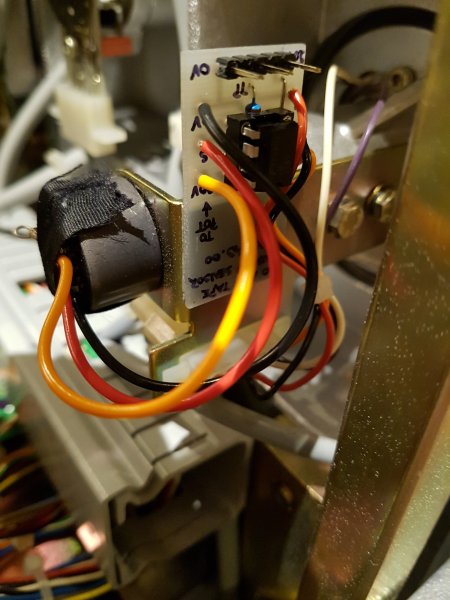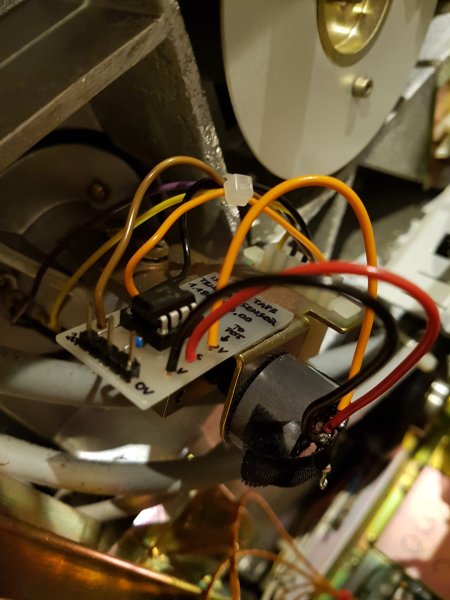Hi Fred, these direct-out cards would be popular with A80 owners - will you offer the cards for sale to forum members and/or the general public?
Hello Steve,
Yes, people ask us for this.
But the request is almost always based on the premise that the repro electronics are the weakest point of the tape playback system. That's an unfortunate misconception popularized by the people who invented the tape renaissance as a way to sell outboard tape stages. Their outrageous message was that you could go out and get any old tape machine. (They like to call them tape decks.) Spend a few hundred dollars on a "deck" and then hack into the head wiring to connect your new tape stage and you have found audio nirvana.
Of course this is total BS.
Anyone who believes that hooking up someone's outboard tape stage will bring a worthwhile improvement, without ever first verifying that it accurately follows the standard reproduce equalization curves (let alone that it outperforms accepted, competently designed professional tape repro circuitry) probably shouldn't be calling themselves an audiophile.
Beware of junk science. The fundamental consideration for achieving state-of-the-art playback of analog tape is in fact found in the transport, because that's where the time base accuracy comes from.
Even though a servo constant tension precision guidance tape transport is maybe twenty times more complex than any turntable, people new to analog tape could still learn an awful lot by paying closer attention to the serious turntable people.
Then, after gaining some understanding of what makes a truly great turntable, they might begin to realize that the time base accuracy of a tape transport (its speed stability, flutter and scrape flutter) is of fundamental and paramount importance.
Time base accuracy in tape playback is very audible. It's what made the A80 and A820 so very, very different from all other machines, including the more common, lower cost Studer models.
But today, the big problem we have is that the surviving A80s and A820s are now way past their anticipated service life before overhaul. Alarmingly (to me), way too many A80 and A820 machine owners seem to think that this rebuilding work can be done by just about anyone. It can't.
Meanwhile parts vendors are cashing in on the DIY tape machine service market. Here in the USA, the situation is particularly bad because we also have companies who have been selling bogus or incompetently engineered parts for A80s and A820s and doing so for decades now.
Back to the subject of direct out for outboard repro electronics.
It should be remembered that the true respected analog tape circuit design professionals have understood for more than thirty years that the first stage of repro gain preferably belongs in the headblock, right next to the repro head (and also correctly matched to that specific head, obviously).
So for me to be selling direct out substitution cards for the A80 RC, to the general public, just seems like a total sell-out.
I'd rather stand up for the principles that I believe in.
Last edited:



